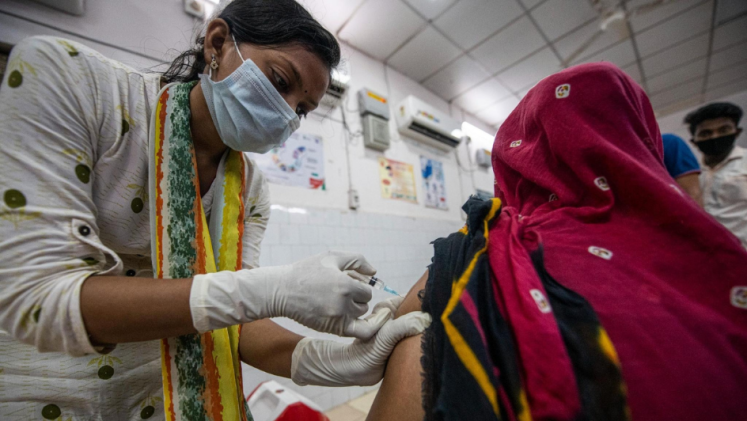The ongoing COVID-19 pandemic has been tremendously difficult for many people across the globe. What was initially viewed as a health crisis affected societies to their core, many of which were already grappling with the devastating effects of climate change, inequalities and other challenges. While crises could appear to be distinct from one another, the increasingly interconnected nature of our world means that their root causes, impacts — and the knock-on effects from them — cannot be viewed in isolation. A recent report by UNDRR and UNU-EHS investigates the systemic nature of risks revealed by the COVID-19 pandemic. The report presents findings from case studies in different countries and contexts.
Measures to combat the pandemic caused cascading domino effects for communities, economic sectors and systems
The pandemic came with many new challenges, such as collapsing health systems, which resulted in restriction measures, such as lockdowns, school or business closures or travel restrictions, aimed to protect at-risk groups and prevent the further spread of the disease. While highly necessary, this had grave impacts on the economy, with associated cascading impacts on debt, poverty and livelihoods in many parts of the world. These impacts affected those in vulnerable situations the hardest. With a better understanding of how risk management choices can potentially lead to cascading effects for different segments of society, unwanted consequences of responses to future shocks and hazards can be avoided. More attention should be paid to better understanding risks linked to responses.
Dependence on global networks has a big impact on the local level
Before COVID-19 hit, the systemic nature of risks was less obvious. During the pandemic, it became clear that in our highly interconnected world new risks emerge from globalization and the interdependence of economic sectors and systems. Entire societies were affected beyond the initial issue of a health crisis, due to the slowdown of trade, the shutdown of borders and the disruption of importing and exporting of goods and services. This has revealed how the vulnerability of one system has the potential to create cascading impacts among other systems as well.
Gender equality has been set back
The COVID-19 pandemic has presented countless examples of how disasters are linked to and amplify pre-existing gender inequalities. Throughout the pandemic women and girls have experienced increases in domestic violence, widened pay gaps, as well as more incidences of child marriage in some parts of the world. Simultaneously, the pandemic has highlighted the role of female leadership in disaster risk management, given that women are far more likely to be working in frontline sectors, such as health and social care. As we recover from COVID-19 as well as other disasters, women, girls and gender diverse groups hence deserve special attention.
Cascading effects of the pandemic severely impacted education and youth well-being
An ad-hoc switch to online schooling or a complete lack of an alternative to in-person education in many places in the world had their effects on the education and mental well-being of many youths. Those with more accommodating and stable home situations, good access to internet and educational resources have fared better than those in less fortunate situations. It is yet to be seen how severe the long-term consequences of this educational divide will become, which demonstrates the delayed cause-effect nature of cascading and systemic risks.
Focus on processes for systemic recovery
The interconnected nature of society presents an opportunity for positive turning points, by creating positive – as opposed to negative - cascading effects. Some policy measures designed to reduce COVID-19-related risks produced additional positive outcomes on top of reducing the direct health risks. Attention should be paid to such policy measures in risk management. Shifting to systemic thinking when recovering from disasters will strengthen risk management for more equal and resilient societies.



